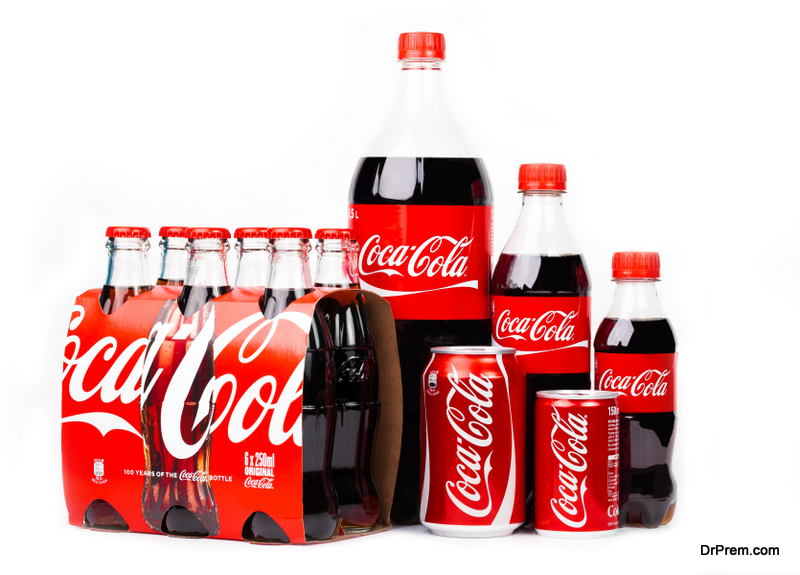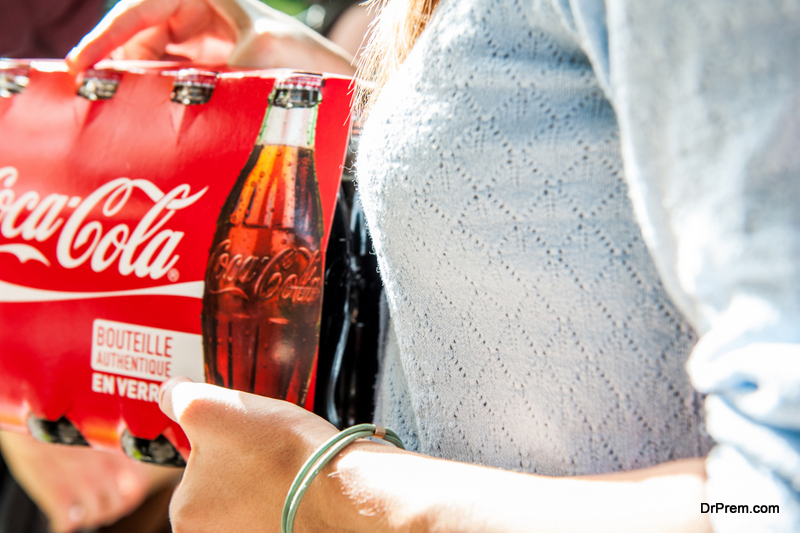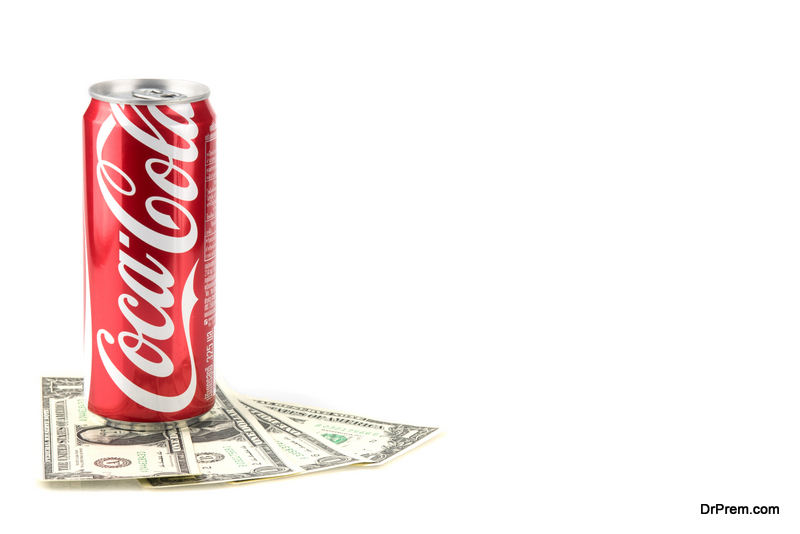Health research funding by popular brands may be a game of trickery to camouflage intentions and retain market share. Business ethics and its wrong application harming consumer health and a desperate drive to channel money to cover up the corporate offensive is a matter of concern!
 Coca Cola’s millions of dollars investment in a not-for-profit organization to spread the message that not diet, but lack of exercise is to be blamed for America’s obesity epidemic faced sharp criticism.
Coca Cola’s millions of dollars investment in a not-for-profit organization to spread the message that not diet, but lack of exercise is to be blamed for America’s obesity epidemic faced sharp criticism.
Findings by research institutions funded by the beverage giant are colored in their favor to arrest a drop in sales revenue. How scrupulous is this effort involving the food industry is a penetrating question. Coca Cola research and development studies have been a product of an agreement between Coca Cola and 4 universities in the US and Canada.
Apparently, the studies are allowed to be independent, but a catch wedded in suggests Coca Cola has a final say in study conclusions. The final decision of the funding company may lead to discontinuation of research if harm to business interests is in the offing.
Obesity research and voice of consumers:
The findings of Coca Cola’s health research funding are misleading that is facing consumer condemnation. Soda and fruit juice are loaded with calories. Obesity research findings have time and again accused sugared soft drinks as a strong cause for health issues, especially being overweight and having type-2 diabetes.
Public consciousness has been delivering hard hits on food industry selling products detrimental to consumer health. As a fall out, the US soft drink companies are registering a steep nosedive in cash yields.
Vested interest in corporate health research funding scheme:
 Corporate funding in research has stepped up since government funding has dwindled to a great extent. This has created a tangled net of conflicts between consumers’ interests and the money-making motive of the corporate. Obesity research is one of the highly controversial areas having a direct impact on the billion dollar annual sales of the food industry.
Corporate funding in research has stepped up since government funding has dwindled to a great extent. This has created a tangled net of conflicts between consumers’ interests and the money-making motive of the corporate. Obesity research is one of the highly controversial areas having a direct impact on the billion dollar annual sales of the food industry.
Although Coca Cola has admitted having spent 118.6 USD on health research funding, including financial aid for a group whose beverage report has been peppered with outright disapprovals, the public has been eyeing this funding endeavor with suspicion.
Financial grants were extended to research and findings that are eventually tilted in favor of Coca Cola. As a consequence, investigation teams went active to explore how fair and transparent the beverage giant is being in its enterprise! In an issue of a periodical of Public Health Policy, it was revealed that from 80000 pages of evidence ultimately gathered, research terms between Coca Cola and 4 Universities stated above came to the fore.
While the consuming public was bent on knowing the exact impact on health these beverages have, Coca Cola apparently projected a public image that it is putting its money exactly on the same exploration. However, there are many a slip between the cup and the lip.
The line of demarcation between an honest business policy and its eventual implementation ensuring no loss of bottom line even at the risk of social health insecurity is indeed very thin. And in Coca Cola’s case, the entire scenario is strongly leveraged in company’s prejudice.
Terms of the agreement have loopholes. The Coca Cola research and development teams are a helpless hostage to these contracts having invisible lines of threat. Yoni Freedhoff, an authority on obesity at the University of Ottawa, admits that proclamations given by Coca Cola on health research funding are explicit.
But there aren’t enough clues to track feedback given by the research team to the Coca Cola. In all probability, Coca Cola wouldn’t allow publication of findings that may criminalize the beverage endangering business prospects.
Revealing colors:
 A study conducted by Cambridge University indicates that health research funding by Coca Cola comes with a string attached. If the company feels the research team is too deep into investigations threatening the existence of the company itself, it will not hesitate to revoke a study report. It retains the authority to abort research halfway through if findings point an accusing finger at company’s reprobate business strategy.
A study conducted by Cambridge University indicates that health research funding by Coca Cola comes with a string attached. If the company feels the research team is too deep into investigations threatening the existence of the company itself, it will not hesitate to revoke a study report. It retains the authority to abort research halfway through if findings point an accusing finger at company’s reprobate business strategy.
What is seen as a text agreement, however harmless may it look, may not disclose the bigger picture. There may be possible communication through emails and phone calls that has an element of threat. Any indication of vilification of Coca Cola coming from research findings would be retaliated with stoppage of project, termination of grant and dismissal of scientists involved.
On a not so harsh note, Coca Cola might pen down rectifications to modify research findings that deliver its eventual message: “lack of physical workouts and a sedentary lifestyle is more responsible for mounting obesity than consumption of sugared beverage”.
A Coca Cola spokesman stated to CNBC that since 2016 onwards Coca Cola had stopped financing any research project singlehandedly. This is in line with recommendations by the WHO and other health watch administrative bodies to exercise restriction on intake of added sugar.
The fizz going flat:
There has been a retraction by Coca Cola following media investigations last summer that expressed its misgivings on financial grant extended by Coca Cola to a non-profit organization called Global Energy Balance Network. The mission of this organization was averting health issues linked to obesity and incorrect food habits.
The nexus and subsequent financial aid looked dubious and looked upon as purchasing the mouthpiece of an independent organization whose voice and findings could be harmful to Coca Cola. Cokes’ business and Global Energy’s mission were at crossroads where the clash of ideologies was inevitable.
This threw a further dollop of blemish on the beverage giant, leading to a drop in revenue. Committed customers opted for juices and flavored water instead of the Coke beverage. Going to desperate lengths, Coca Cola produced and marketed stimulating milk called Fairlife. It didn’t stop at this and bought a small share in Suja, a company manufacturing organic juice.
For donating millions of dollars to Global Energy for the alteration of research-based opinion that obesity is caused by leading an inactive life rather than drinking coke, the beverage giant had lost much of its former charisma.
Findings were marred by impurities and confusing notions that do not accuse sugar present in coke responsible for type 2 diabetes and obesity. The target was to compel consumers into believing Coca Cola won’t pose any health hazard as long as you exercise. Isn’t it a dangerous premise on which the idea of health research funding rests? Fueling financial growth of a company seems top priority while consumer wellbeing takes a backseat.
Content is written by a community writer, the publication holds no responsibility about the content






